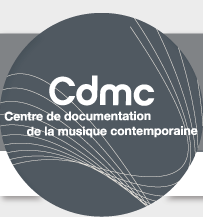American identity in music: from Aaron Copland to Steve Reich

Presentation by Pierre-Albert Castanet, teacher at the University of Rouen, associate teacher at the Paris Conservatory; Daniel Caux, journalist, essayist, radio broadcaster; Makis Solomos, musicologist, University of Montpellier 3; François Coadou, philosopher, teacher at the École Supérieure d'Art de Toulon-Provence-Méditerranée.
Moderator: Philippe Lalitte, musicologist with the LEAD at the University of Dijon.
In the America of the nineteenth century as constructed by immigrants of all nationalities, a new music was born in the image of a new world. Both puritanical and rebellious, society was built on the artistic, philosophical, cultural foundations of old Europe, but it also created its own dissident idealists. Henry David Thoreau, a transcendental philosopher admired by John Cage, wrote Civil Disobedience, which was also to inspire Martin Luther King. From the 1950s and 1960s, in an explosive social context, « black » music and « white » music began to diverge, the one towards expressionism, the other towards minimalism, while others clouded the listening experience, refuting European serialism. Cage introduced the concept of chance into his scores, Charles Ives experimented with the spatialisation of orchestras. Steve Reich and George Crumb denounced or based themselves on federal and international conflicts. Trends within American counter-culture such as rock, folk, pop, were in opposition to the political and ideological context of the 1970s… music and politics were thus indivisible and closely linked in order to forge the American cultural identity. Such is the theme of this debate between musicologists, journalists and philosophers.
Philippe Lalitte : Introduction
Makis Solomos : The other America : Ives, Cage and the transcendentalists
Daniel Caux : Black music and the Fifties-Sixties turning point
François Coadou : The music of American counterculture
Pierre-Albert Castanet : Social history of American music








